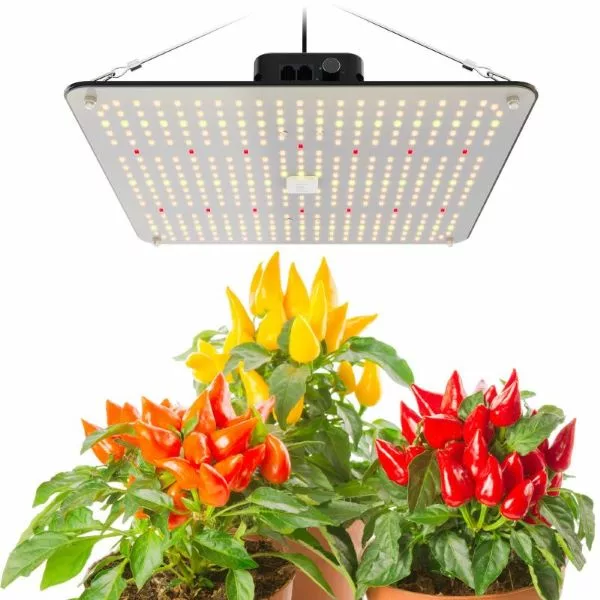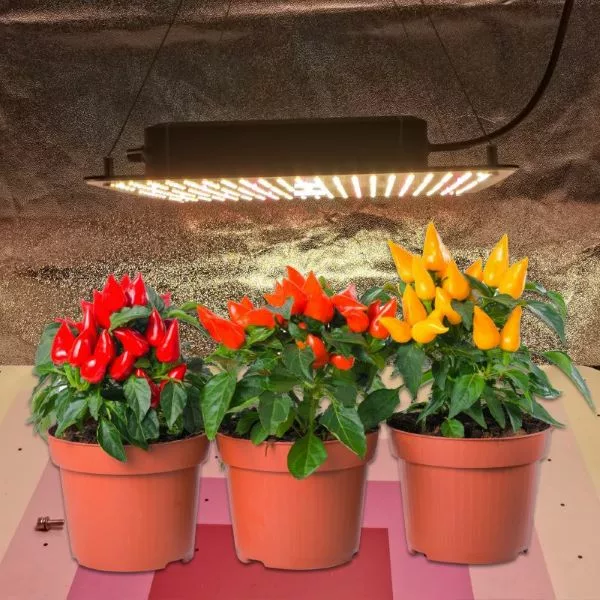Plant lights are lighting fixtures that use light to promote plant growth. It can make up for the lack of natural light, provide suitable light conditions for plants, promote plant photosynthesis, and improve plant yield and quality. In the world of gardening, providing adequate light for your plants is crucial for their growth and overall well-being. Whether you're a seasoned gardener or just starting out, understanding the importance of plant lights and how to use them effectively can make a significant difference in the success of your garden.
Why Plant Lights Matter
Photosynthesis: Plant lights provide the necessary light spectrum that plants require for photosynthesis. Photosynthesis is the process by which plants convert light energy into chemical energy, enabling them to produce their own food. Without adequate light, plants cannot photosynthesize effectively, leading to stunted growth and poor health.
Growth and Development: Different wavelengths of light play a crucial role in regulating plant growth and development. For example, blue light is important for vegetative growth, red light promotes flowering and fruiting, and far-red light can influence plant morphology. Providing the right balance of light wavelengths can optimize plant growth and yield.
Light Intensity: The intensity of light received by plants affects their growth rate and overall health. Insufficient light can result in leggy growth, pale leaves, and weak stems, while excessive light can cause sunburn and damage to plant tissues. Properly calibrated plant lights can provide the optimal light intensity for healthy plant growth.
Photoperiodism: Light exposure also influences the biological processes of plants, such as flowering, dormancy, and circadian rhythms. By controlling the duration and intensity of light exposure, indoor growers can manipulate these processes to their advantage, promoting flowering or adjusting growth cycles.
Supplementing Natural Light: In indoor settings where natural sunlight may be limited or inconsistent, plant lights serve as a reliable source of artificial light to ensure plants receive the required amount of light for photosynthesis and growth. They help bridge the gap between natural light availability and plant requirements.
Overall, LED plant lights are crucial for indoor gardening because they provide the light spectrum, intensity, and photoperiod necessary to support healthy plant growth, development, and productivity. By understanding the importance of plant lights and selecting the right lighting setup, indoor gardeners can create optimal growing conditions for their plants.


TUBU Brand Introduction
TUBU is an enterprise focusing on the research, development, production and sales of plant lights, with many years of industry experience and technology accumulation. TUBU plant lights are favored by the majority of growers due to their high light efficiency, energy saving, and long life.
Advantages of TUBU Plant Lights
High light efficiency: TUBU plant lights use high-quality LED lamp beads with a light efficiency of up to 2.8μmol/J, which saves more than 50% energy than traditional lamps.
Promote growth: The spectrum provided by TUBU plant lights meets the needs of plant growth, can promote plant photosynthesis, and increase plant growth speed and yield.
Reliable quality: TUBU plant lights are made of high-quality materials and advanced technology, with reliable quality and a lifespan of up to 50,000 hours.
After-sales service: TUBU provides comprehensive after-sales service for you to use worry-free.
TUBU Plant Light Application Scenarios
TUBU grow lights are suitable for a variety of plant growing environments, including:
Greenhouse cultivation
factory farming
Home cultivation
Scientific research and teaching
TUBU Customer Cases
After using TUBU grow lights, Customer A’s tomato yield increased by 20% and the quality was significantly improved.
After using TUBU grow lights, Customer B shortened the strawberry growth cycle by 10% and increased the fruit size by 15%.
TUBU Plant Light Purchasing Guide
Choose the right spectrum for your plants
Choose the appropriate power according to the planting area
Choose formal channels to purchase
TUBU grow light, your best helper for planting!
